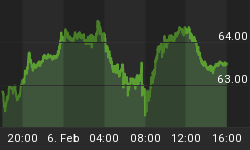Was it only 2009 when providing a list of 100 Things that Disappear First was cutting edge? Now we've got John Williams of Shadow Stats telling his clients to prep and don't forget to rotate those #10 cans. I mean, man, this is coming from a guy who still wears a suit to work. And Chris Martenson's suddenly gotten that old-time prepper religion. I know it's hard to research all this stuff when you, like, have a day job, but none of this is new and a Google search doesn't take that much time. But moving along ...
The Fed: The impetus for today's article was Max Keiser's recent interview of Reggie Middleton, linked to by Zero Hedge. Max tried, unsuccessfully, to get Reggie to give his opinion of what he thought the Fed's real motives were when it announced QE3. Is there anyone left out there who believes that the Fed's motives have something to do with improving the general economy or the lot of the common man?
People keep saying the Fed has failed. Failed at what? It's doing great. Why this endless discussion about what the Fed's going to do and for whose benefit it's going to do it. The Fed is looking out for the best interests of its owners, just like it's supposed to. We are not its owners, the member banks are. The Fed's still there, Bernanke's still there, apparently Bernanke's bosses feel he's doing a good job. And it's not like some benefit hasn't trickled down; don't underestimate the value of the extra time he's bought.
What Bernanke's Accomplished: Bernanke's done an extraordinary job, at least so far, of keeping the world afloat. He's brought short-term interest rates to zero and kept them there. Now he's in the process of flattening the rest of the yield curve even if it means buying every treasury out there. What am I saying, he already did. The Fed purchased 77% of the Treasury's issuance in the last year. Of course, foreigners don't want US sovereign debt at zero rates, but who cares. If the Treasury pays 0% on its debt and the Fed's OK with that, the Treasury can issue all the debt it wants to forever, and that's whole the point. I know there's a cost to all of this and somebody always ends up with the short end of the stick. It just happens to be you and me this time. I thought from the beginning, and still do, why don't they just fake it and give out money for free? And apparently they are.
Another Thing or Two
Inflation: Food is more expensive today than it was a few weeks ago. That's an increase in inflation, regardless of what Austrian-economics adherents want to call it. When they go to the grocery store, or anyplace else for that matter, are they spending more money than they did the previous week? Obviously, yes, but it's because food costs more not because they got a raise and single handedly increased the money supply. And even Austrian economist-types get food stamps when they lose a job. The money supply is decreased, in particular theirs, but prices don't decrease, they keep inflating.
Money: Gold is money. And that's true whether you can eat it or not, its centuries-long shelf life notwithstanding. A New York restaurant's thousand-dollar hamburger of a few years ago was sprinkled with diamonds. Apparently, you can eat diamonds so why not gold.
There is anecdotal evidence that some service providers---in this case doctors---are taking chickens as payment so chickens are money as well. Potatoes were money in the first depression; my surgeon step-grandfather used to take them. He once received an elaborate dollhouse as payment for an appendectomy. As the country and world sink further into a depression, children's toys will be money again too.
Sustainability: This term is so overused and what does it mean anyway. Many things aren't sustainable, but that doesn't mean complex systems come to a grinding halt when something runs out. Most of the time these things are anticipated and there is substitution. Or not, and people just learn to do without. For instance, and despite what people say, so far, the increasing debt of the US is sustainable. Who'd a thunk it, but at 0% interest and never having to pay it back, sky's the limit.
Hoarding and Barter: Under this category, there are a few things that even survivalists aren't talking about yet. When the dots of financial collapse, peak oil, peak food production, and the other peaks are connected, you realize that not only are there going to be shortages, but some things might not be available at all, in particular things that come from far away.
One thing that comes from far away is medicine and shortages are occurring again. But what about shortages of everyday items like spices, which, like the raw materials for many medicines, are grown in the tropics. Really, for as long as you're able to stay alive without medical care, you're going to want to season your food and this segues into barter. A lot of people talk about keeping a supply of booze for barter, but you can make booze in your bathtub. Don't you think a little tin of pepper will have wider appeal, especially when, other than your stash, it's gone? Pepper could come to be worth its weight in gold and nobody disputes that it's edible.















